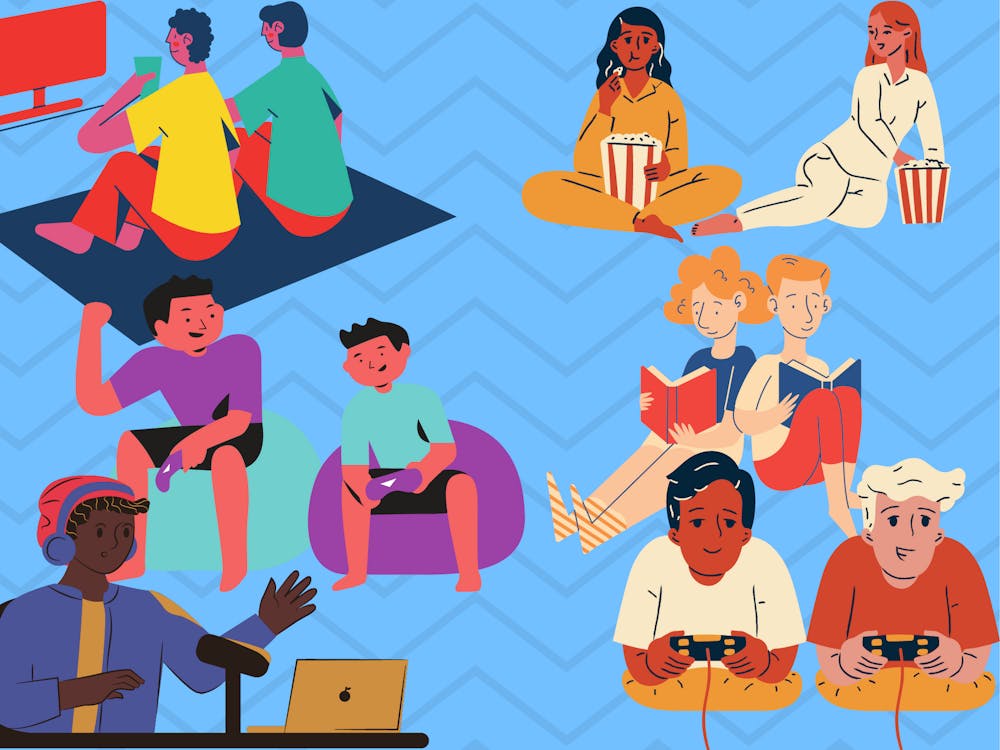The crinkle of the wax paper as I sat in the patient chair. 9 a.m. on a Friday morning, the earliest the urgent care would open. June 19, 2020. My mother sat across the room in a chair, sitting on her phone and tapping her foot. She was stressed, I could tell. It was like she knew something was wrong before the nurse even walked in. A mother’s intuition, maybe.
The nurse entered the room. My brain won't let me forget the look on her face, her eyebrows knit in a sad expression, the look of “I don't want to have to tell you this.” I knew at that moment something was wrong. I had felt sick for the past few days, but surely it was nothing serious.
Right?
She held a clipboard revealing the results of my blood test.
Your blood sugar is at 567, which means you have type one diabetes. We need to get you to the hospital as soon as we can.
I stayed in the hospital for three days as they slowly lowered my blood sugar back to a safe range. If it lowered it too fast, they told me, then I could have a seizure, and either damage my nerves beyond repair, or I would die.
Up until that point, I had never considered my life to be in danger, not even once. Through rattlesnake sightings and falling off waterfalls and walking alone at night, not once had I truly, genuinely, considered my own death. From that day on, I thought of it constantly.
IV after IV, blood draw after blood draw, poked and prodded and filled with saline and insulin, all of that, and then they just let me go. I walked out of the hospital, my arm still sticky from the tape that secured the IV, with a new diagnosis and no idea how to understand it.
For a while, I tried to convince myself I wasn’t sick. I wasn’t sick, I was just different. It wasn't a big deal, all it was was a quick injection before I ate, that was it. But I was lying to myself. It was a big deal, my entire life was changed from that moment on.
I grew obsessed with the idea of perfection. Perfect blood sugar, perfect eating habits, perfect diabetes. But life with a chronic illness, especially one as up and down as diabetes, will never be the perfect I wanted it to be. I can do everything “right,” and still be out of range. Things like stress, menstrual cycles and exercise can all affect my blood sugar, not just carbs. There is no one easy solution to managing blood sugar as a diabetic, everyone is affected differently.
But, that obsession with perfection began to spread beyond just my illness. I was unable to control my diabetes, so I forced that control somewhere else, and just two months after my diagnosis of type-1 diabetes, I developed a severe eating disorder.
This is not an uncommon experience. In fact, rates of eating disorders are two times as high among diabetic women aged 12-19 than non-diabetic women in the same age range.The hyper-focus on food, requirement to read all nutrition labels and, for me, the feeling of a loss of control are factors that can lead to disordered eating. Eating disorders among college women are also extremely common, with 10-20% of female students having a diagnosed eating disorder.
I became terrified of food, terrified of insulin, terrified of gaining weight. Additionally, when I didn't eat, my blood sugar would finally stay in range. I believed I was finally in control. I believed I was finally “perfect.”
But I wasn’t perfect. I was dying.
After three months, I was diagnosed with anorexia nervosa, and began recovery while simultaneously trying to understand how to manage my diabetes at the same time. It was a long process, and took many months until I could be considered physically and mentally recovered.
I had to develop compassion for myself, not just for my own happiness, but for my survival. If I couldn't allow myself to mess up, allow myself to be angry, sad, frustrated, I wasn’t going to survive a life of chronic illness. Because that’s what life is when you are chronically ill.
Sometimes, you forget about it, you can manage it, it doesn't feel that hard. But other days, it’s all you think about, exhausedly checking your blood sugar, taking more insulin because it just won't go down, wincing at the bruises that cover your legs, arms, and stomach from injection sites. And sometimes you hate it, and you’re allowed to hate it.
During this year, I’ve learned what health really means. I don't sleep eight hours a night. I don't drink eight cups of water a day (you're lucky if I get two) and I certainly don't exercise regularly. I stay up late and wake up early, drink more cups of coffee than I do water and only ever seem to make it to the gym half an hour before they close. But even if I did do everything “right,” if I went to sleep early and drank enough water and worked out routinely, I still wouldn't be considered “healthy.”
Health is relative. The constant pursuit of being perfectly healthy can become unhealthy faster than you realize. And, for the chronically ill population, here at UP and everywhere else, being healthy can feel futile.
So, don't. Don’t be healthy, be compassionate. Allow yourself to be wonderfully unhealthy. Stay up late to talk to your friends, down coffee like it's the elixir of life, workout because you want to, not because you have to. Take care of yourself, but don’t feel like you have to be perfect when you do.
Kate Cuadrado is a reporter for The Beacon. She can be reached at cuadrado24@up.edu.
Have something to say about this? We’re dedicated to publishing a wide variety of viewpoints, and we’d like to hear from you. Voice your opinion in The Beacon.








